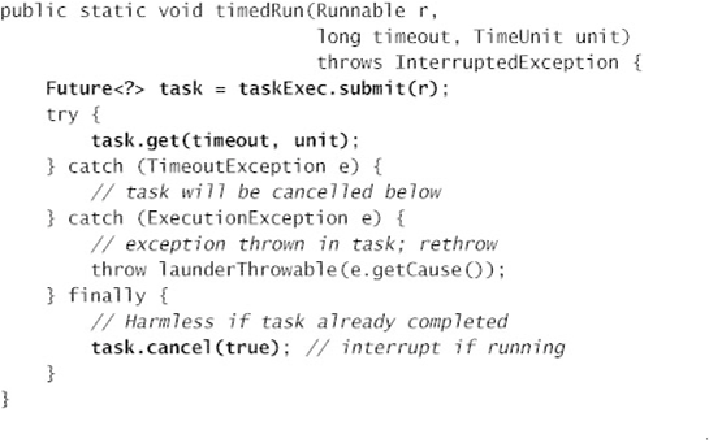Java Reference
In-Depth Information
using interruption, so it is safe to set
mayInterruptIfRunning
when cancelling tasks
through their
Future
s when they are running in a standard
Executor
. You should not in-
terrupt a pool thread directly when attempting to cancel a task, because you won't know what
task is running when the interrupt request is delivered—do this only through the task's
Fu-
ture
. This is yet another reason to code tasks to treat interruption as a cancellation request:
then they can be cancelled through their
Future
s.
and retrieves the result with a timed
Future.get
. If
get
terminates with a
TimeoutEx-
ception
, the task is cancelled via its
Future
. (To simplify coding, this version calls
Fu-
ture.cancel
unconditionally in a
finally
block, taking advantage of the fact that can-
celling a completed task has no effect.) If the underlying computation throws an exception
prior to cancellation, it is rethrown from
timedRun
, which is the most convenient way for
the caller to deal with the exception.
Listing 7.10
also illustrates another good practice: can-
celling tasks whose result is no longer needed. (This technique was also used in
Listing 6.13
on page
128
and
Listing 6.16
on page
132
.)
Listing 7.10. Cancelling a Task Using
Future
.


